Share This
Videos and Photos24 July 2015
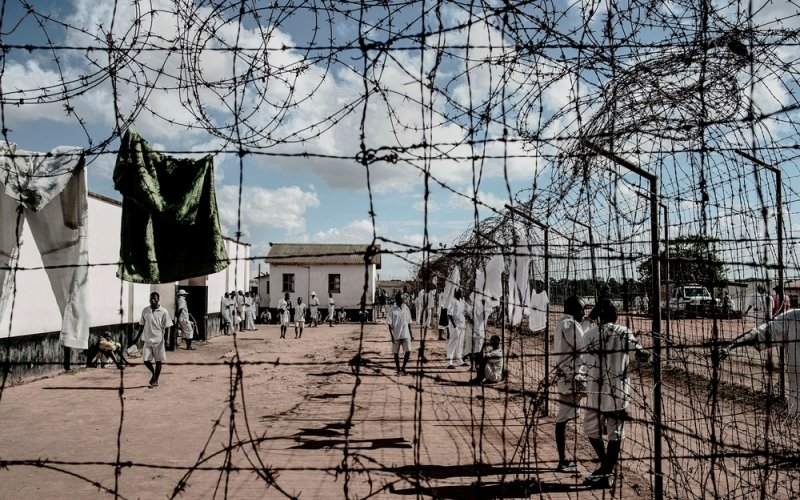
MSF has worked in two of the four central prisons in Malawi since September 2014: Maula prison in the capital Lilongwe, the largest in the country with 2,650 inmates serving both short and long sentences; and Chichiri in the southern city of Blantyre, with 2,000 inmates, both convicts and a significant number of remandees awaiting trial. Photo: Luca Sola
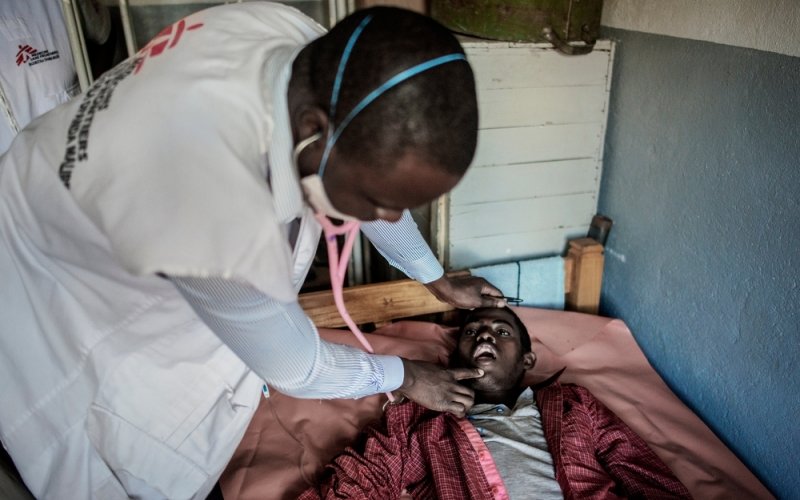
A member of MSF's medical team examines a patient in Maula prison. Detainees often suffer from poor health due to the poor living conditions. Photo: Luca Sola
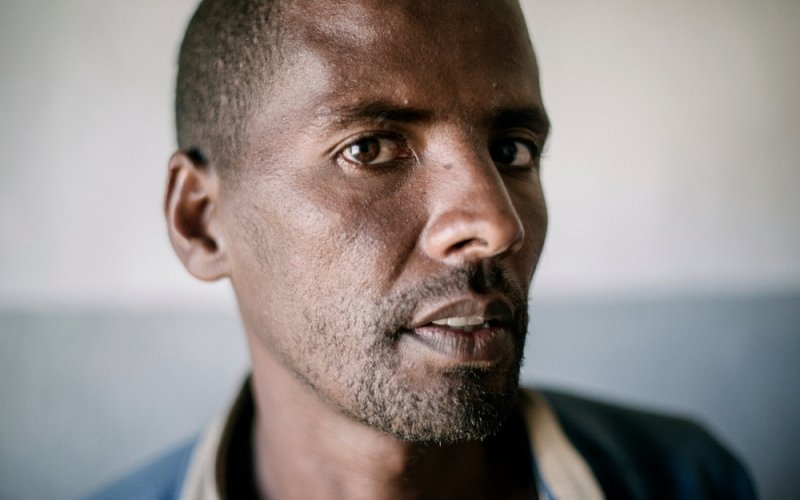
“I . . . worry for my life," said this 18-year-old detainee from Ethiopia. "I'm scared to spend more time in another prison because without money or the support of your family that gives you some proper food, I seriously risk falling ill due to malnutrition." Photo: Luca Sola
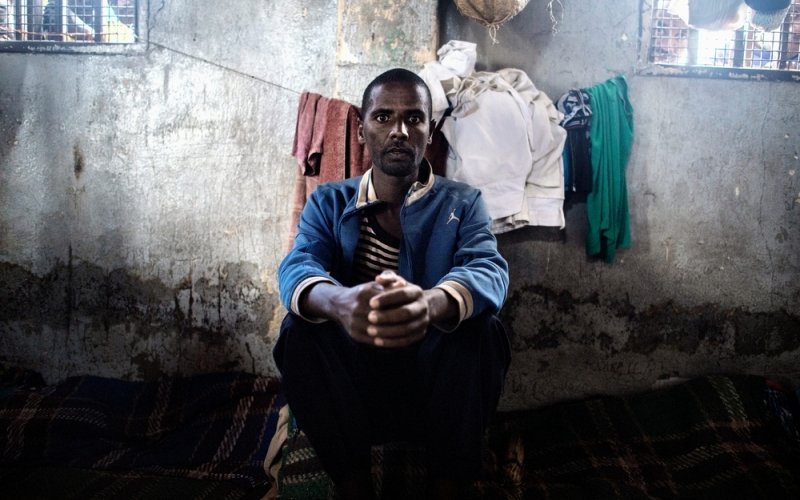
“We go [to South Africa] because in our country we don’t have enough to live," said Abebe, a 41-year-old Ethiopian migrant. "This is why we leave our country. Not for fun.” Photo: Luca Sola
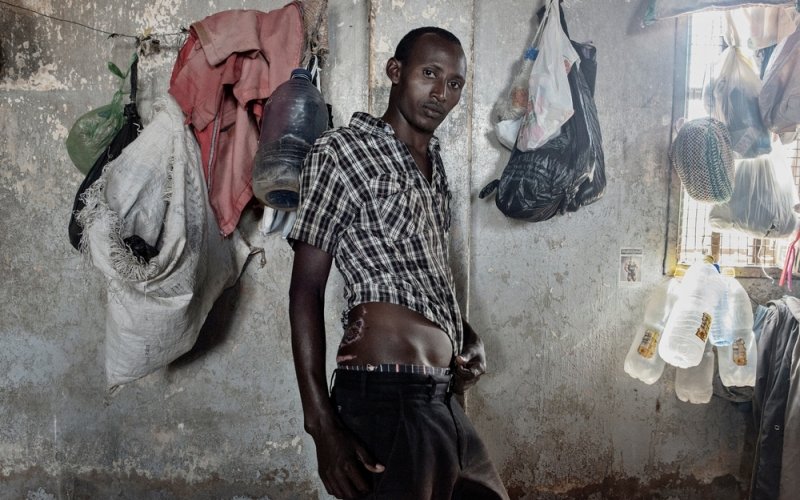
Tasfaya, an 18-year-old migrant, left Ethiopia due to economic hardship and was arrested for illegal entry into Malawi. Like most prisoners he sleeps on cement floor and usually on one side of the body. He gets treated for his sores at the prison clinic which is being run by MSF. Photo: Luca Sola
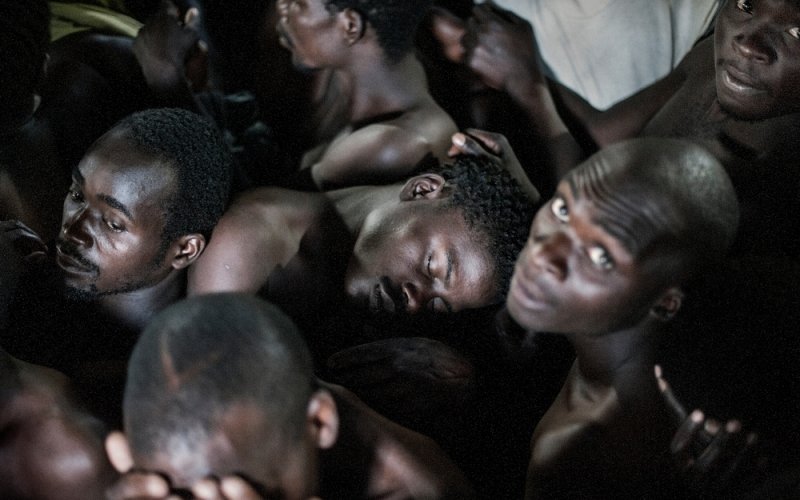
Prisoners sit in an overcrowded cell at night. Chichiri Prison was built to house 800 prisoners, but 2,000 are currently detained there. There are many cases of the viral transmission of tuberculosis, hepatitis, malaria, and HIV, as well as other diseases related to unhygienic conditions, such as scabies and skin infections. Photo: Luca Sola
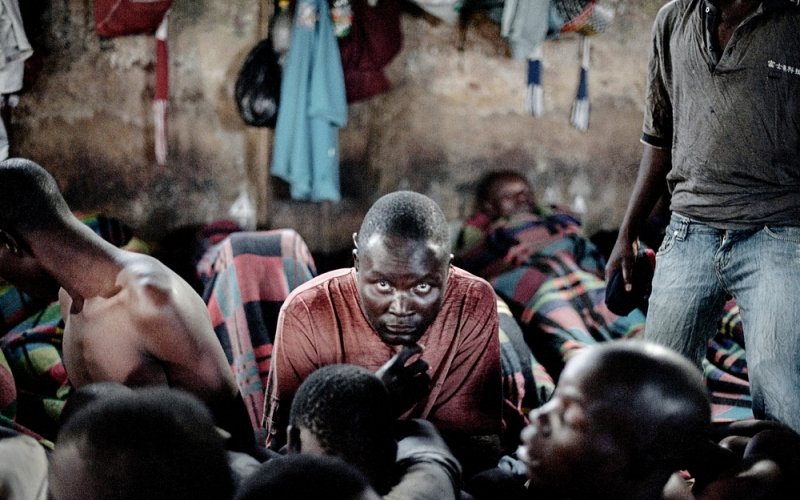
Water and sanitation in the prisons are inadequate. Chichiri’s inmates share one shower per 180 people; MSF's minimum emergency standard is at least one shower per 40 people. In Maula prison there is one tap for 900 people, compared to a minimum emergency standard of one tap per 200 to 250 people, and one latrine for 120 people, while the minimum standard is one latrine per 20 to 50 people. Photo: Luca Sola
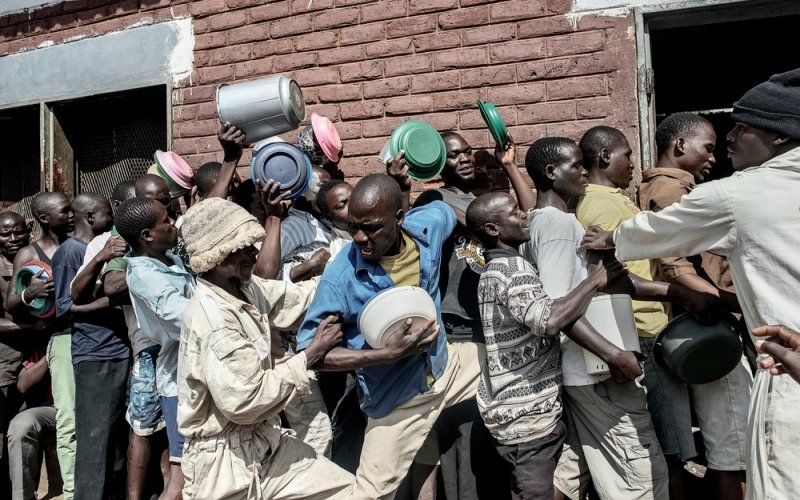
Prisoners queue for food in Chichiri Prison. They are fed just once a day, and the quality of the food is poor—six days of nsima (boiled corn flour with no salt or other ingredients) and boiled beans once a week. As a consequence, cases of malnutrition are common. Photo: Luca Sola
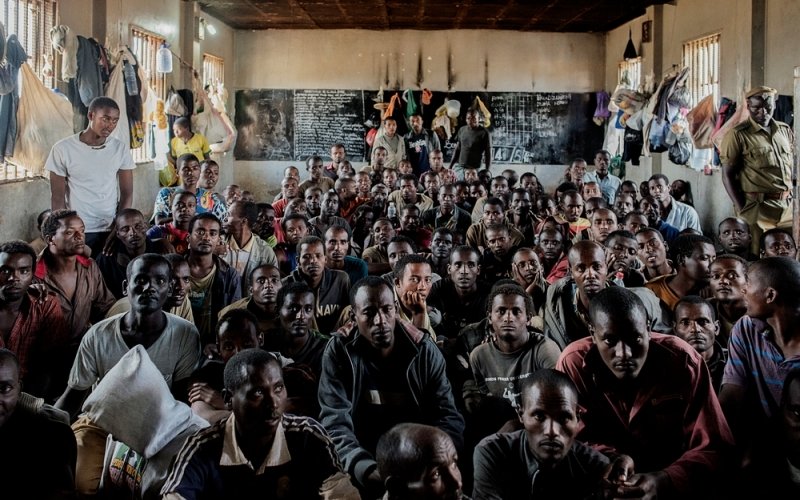
As of July 20 there were 193 Ethiopian migrants detained in Maula prison because of their illegal status. They are detained together in a single cell designed to house 50 to 60 people, resulting in extreme overcrowding conditions. By June 12, 160 of them had finished their sentences but were still detained. Photo: Luca Sola
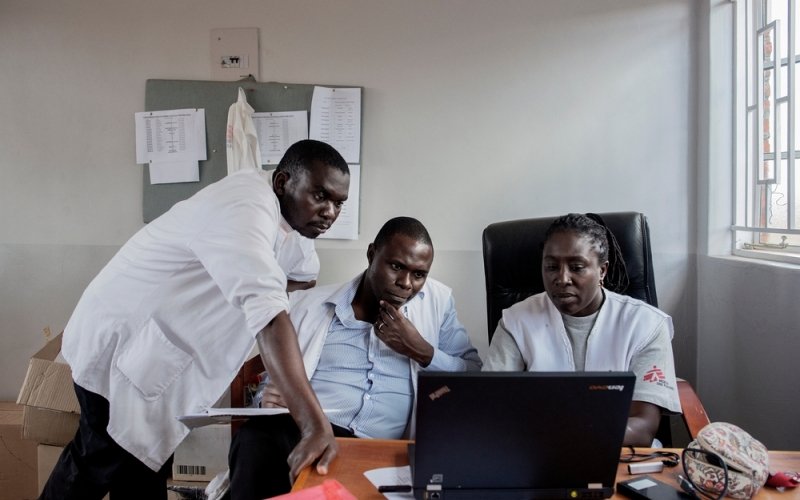
MSF prison coordinator Caroline Aluda, at right, briefs her local colleagues in Maula about the medical needs in the prisons. MSF’s medical team is comprised of four staff at each site. Photo: Luca Sola
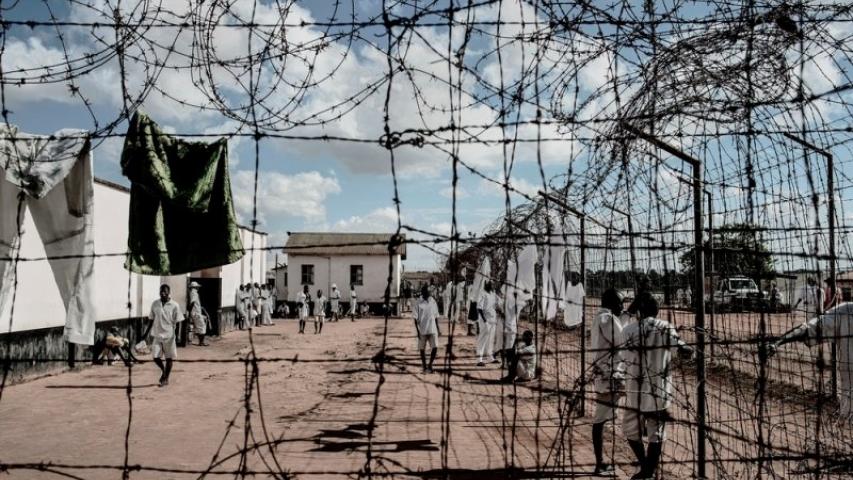
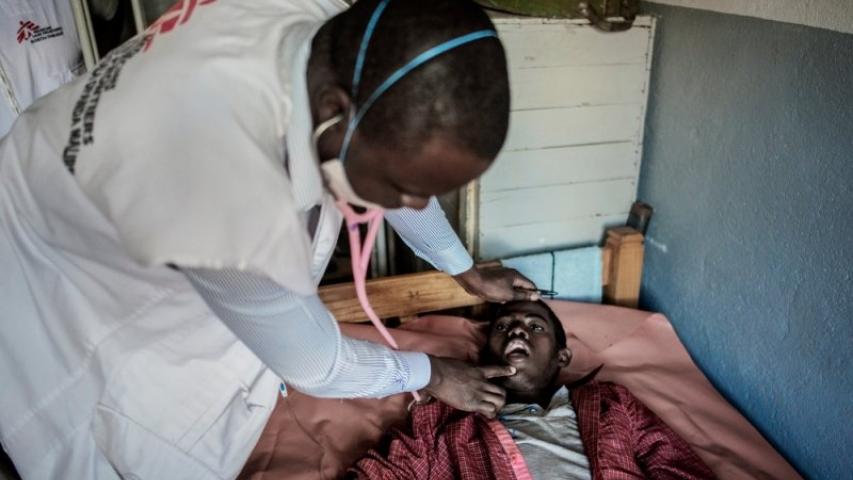
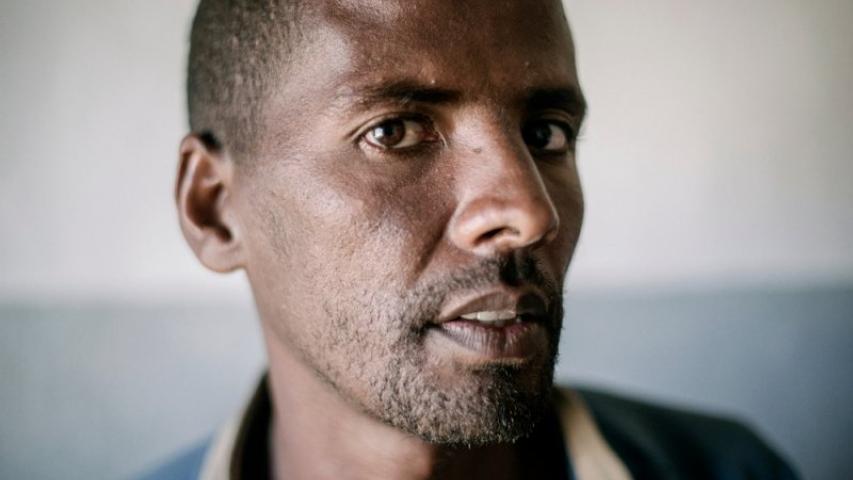
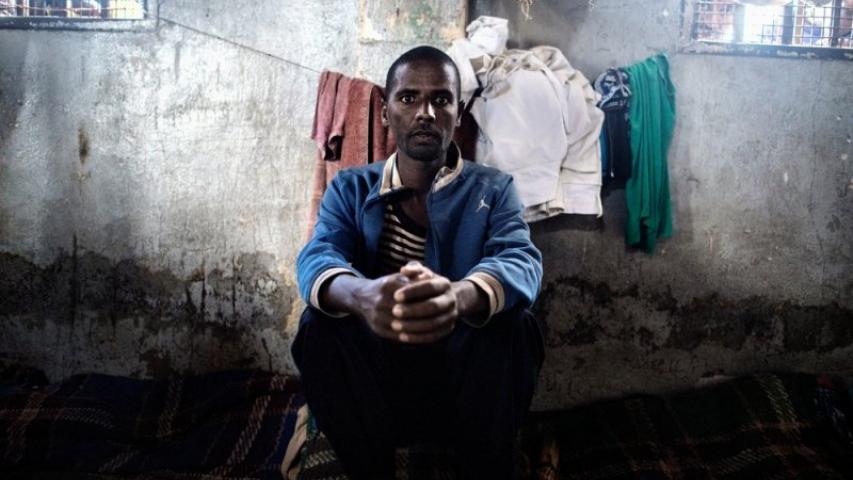
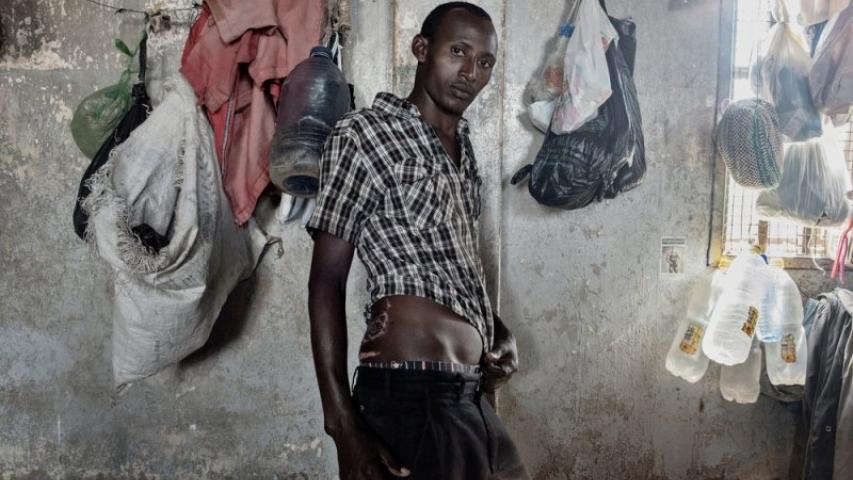
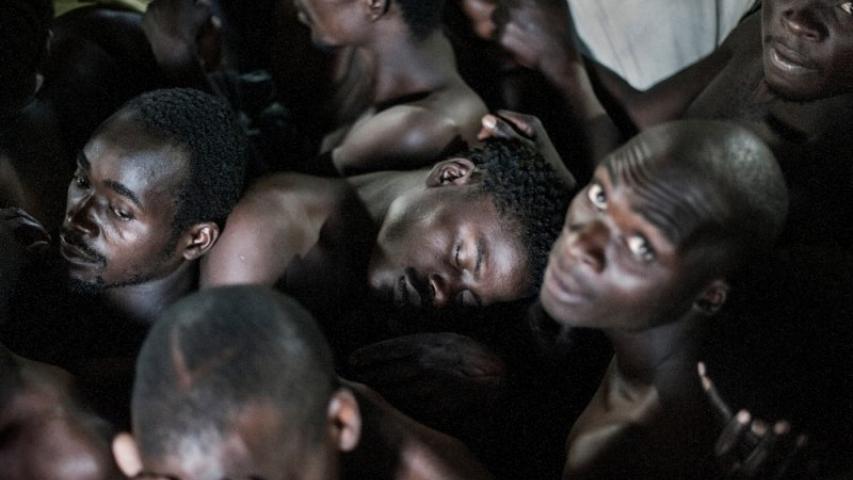
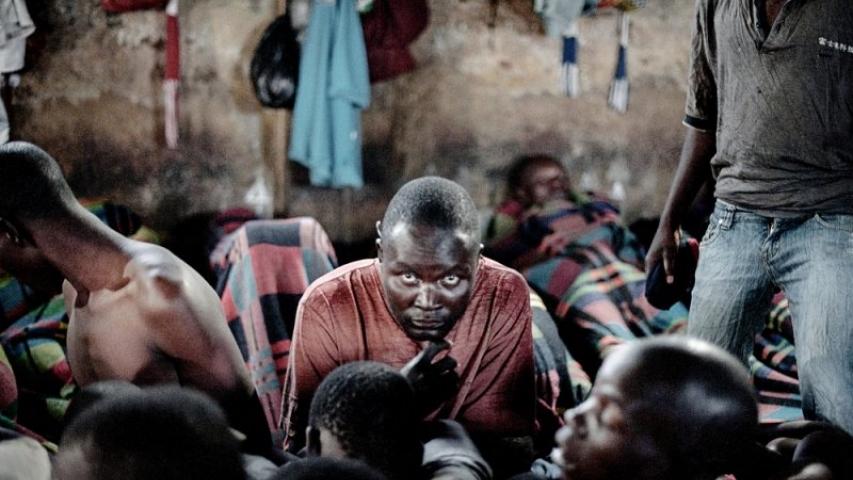
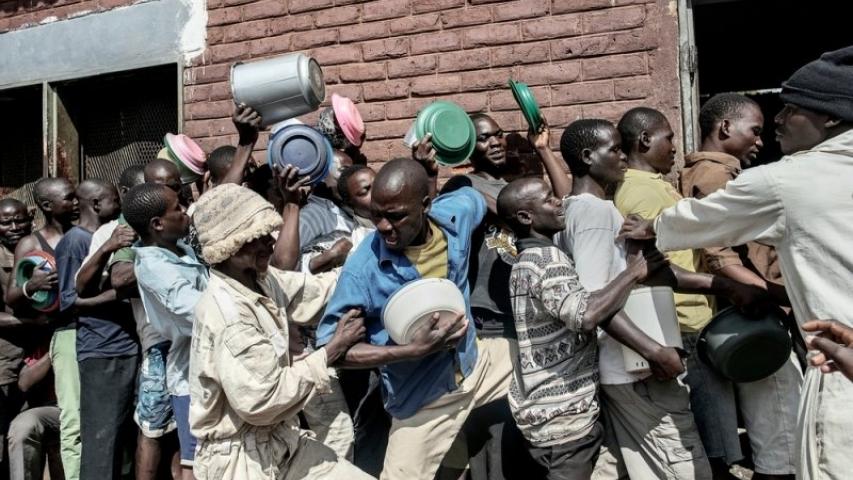
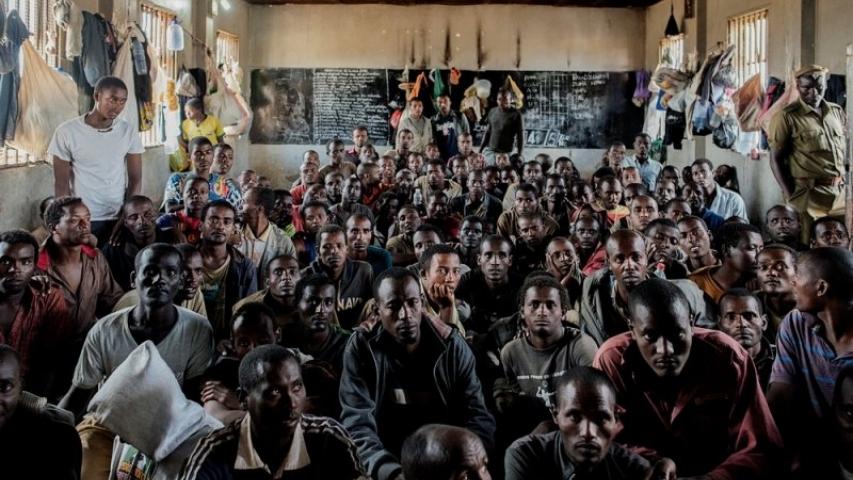
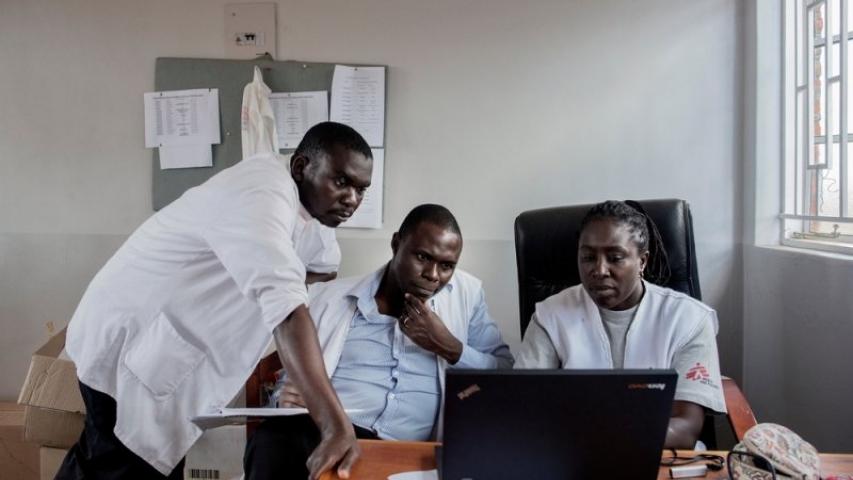
Over 200 migrants, the majority of them from Ethiopia, are currently incarcerated in Malawi prisons because of their undocumented status.
Most were on their way to South Africa, hoping to flee harsh poverty and make a better life there. The justice system for migrants in Malawi is unclear: most of these prisoners have finished serving their sentences and were supposed to have been released and repatriated already.
The migrants are detained in harsh condition: there is extensive overcrowding, food is inadequate, and sanitary conditions are precarious. Doctors Without Borders (MSF) is providing medical care in two of these prisons.